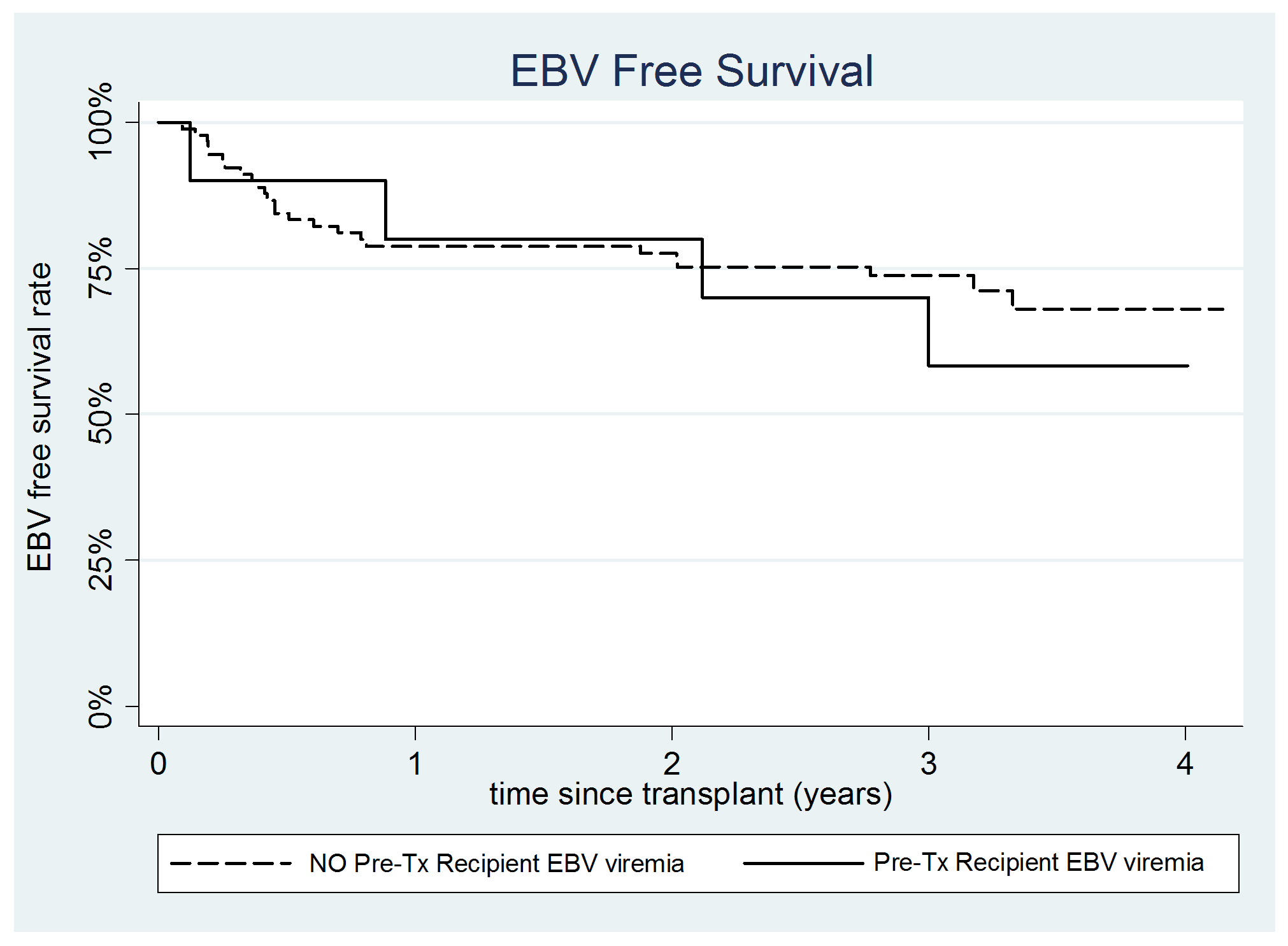Does EBV Viremia at Time of Transplant Have a Negative Impact on Transplant Outcomes?
P. Verghese, H. Balfour, D. Schmeling, J. Grimm, S. Chinnakotla, A. Matas.
University of Minnesota, Minneapolis
Meeting: 2017 American Transplant Congress
Abstract number: A292
Keywords: Epstein-Barr virus (EBV)
Session Information
Session Name: Poster Session A: Viral Conundrums
Session Type: Poster Session
Date: Saturday, April 29, 2017
Session Time: 5:30pm-7:30pm
 Presentation Time: 5:30pm-7:30pm
Presentation Time: 5:30pm-7:30pm
Location: Hall D1
Being EBV antibody (Ab) positive at the time of transplant increases the risk of post-transplant lymphoproliferative disorder (PTLD) and is a significant threat to patient and graft survival. EBV Ab+ patients may or may not have ongoing viremia. It is unknown whether active replication (viremia) at the time of transplant further increases the risk of EBV-related complications post-transplant. We conducted a 5-year prospective study of EBV in primary solid organ transplant (SOT) recipients. At transplant, recipients were studied for EBV viral Ab; they were followed for EBV replication via PCR technique at the time of transplant, and at a pre-determined schedule for 5 years after transplant. Recipients received 3 months of valganciclovir except recipients who were EBV Donor Ab+ Recipient Ab-: they received 6 months and 1 year of anti-viral prophylaxis if adult / pediatric recipients respectively.
Of the 102 recipients in whom EBV PCR was checked at the time of transplant, 10 had detectable EBV replication with 100-3000 copies/mL (mean 670 +/- 870) in the blood. They were not demographically different from the recipients that did not have EBV viremia at transplant. Median post-tx follow up was 571 days (range 22 days – 4.1 years). Patient and graft survival were not significantly different (p 0.9; 0.36 respectively) in recipients who did and did not have EBV viremia at transplant. Post-transplant EBV viremia free survival was also not significantly different (p 0.49). There were no PTLD cases or infectious mononucleosis post-transplant in any recipients who had EBV viremia at the time of transplant.
There were no PTLD cases or infectious mononucleosis post-transplant in any recipients who had EBV viremia at the time of transplant.
In conclusion, recipient EBV viremia at transplant was not common; importantly, viremia at tx was not associated with differences in patient / graft survival or post-transplant EBV viremia, EBV-related PTLD or disease.
CITATION INFORMATION: Verghese P, Balfour H, Schmeling D, Grimm J, Chinnakotla S, Matas A. Does EBV Viremia at Time of Transplant Have a Negative Impact on Transplant Outcomes? Am J Transplant. 2017;17 (suppl 3).
To cite this abstract in AMA style:
Verghese P, Balfour H, Schmeling D, Grimm J, Chinnakotla S, Matas A. Does EBV Viremia at Time of Transplant Have a Negative Impact on Transplant Outcomes? [abstract]. Am J Transplant. 2017; 17 (suppl 3). https://atcmeetingabstracts.com/abstract/does-ebv-viremia-at-time-of-transplant-have-a-negative-impact-on-transplant-outcomes/. Accessed February 19, 2026.« Back to 2017 American Transplant Congress
